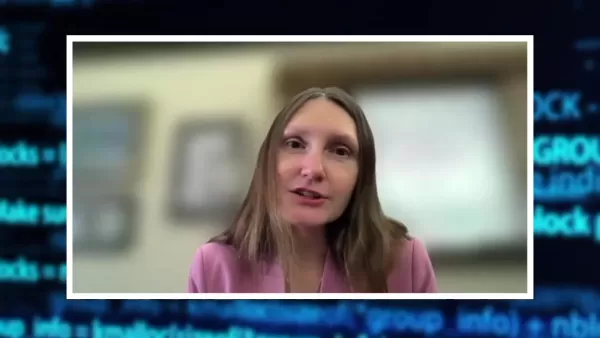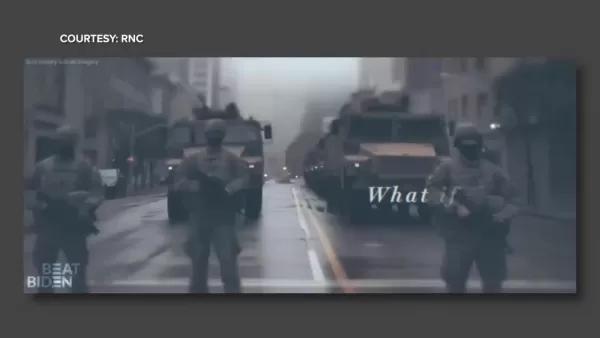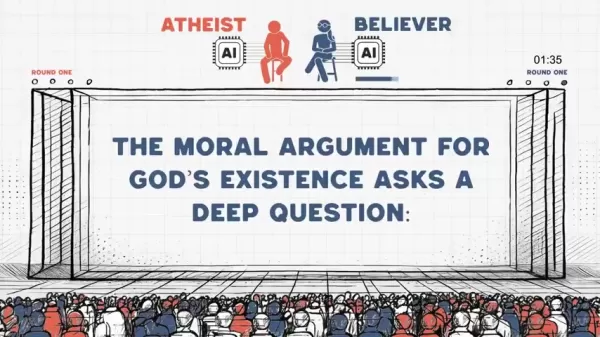AI Voice Cloning: Election Threat & How to Protect Yourself
The rise of artificial intelligence is reshaping our world, touching everything from how we communicate to how we vote. Yet, it's also throwing some serious curveballs at democracy, particularly with the advent of AI voice cloning technology. This tech is getting scarily good at mimicking voices, and it's not just a cool party trick—it's being used to craft fake audio of political figures, spreading lies that could sway elections. In this article, we'll dive into the dangers this tech poses and explore the efforts to combat this emerging threat to fair voting.
The Growing Threat of AI Voice Cloning in Elections
Understanding AI Voice Cloning
AI voice cloning uses artificial intelligence to whip up a digital version of someone's voice. It's like the tech listens to a bunch of your old speeches, picks up on your unique vocal traits—like how high or low your voice is, your tone, and even your rhythm—and then spits out new audio that sounds just like you. It's pretty neat for things like audiobooks or helping folks who've lost their voices. But here's the rub: it can also be used for some shady stuff, like faking news or scamming people out of money. And because it's so convincing, it's tough to spot the fakes, which is a big worry for elections.

As AI gets smarter, the potential for misuse grows. It's crucial for everyone to understand this tech and stay sharp about what they're hearing. In elections, voice cloning could be used to fake endorsements, spread lies about candidates, or even pretend to be the candidates themselves. It's easy to see how this could confuse voters and mess with election outcomes.
The Ease and Speed of Creating Fake Audio
What's really alarming is how quick and easy it is to make these fake audios. I mean, according to State Representative Penelope Serneglou, someone whipped up a voice clone of President Biden in less than five minutes. That's terrifying because it means bad actors can pump out misleading audios in a flash, right before elections. And tracing where these fakes come from? It's like finding a needle in a haystack because the tech is so good at copying voices.

The cost to create these clones has dropped too, meaning anyone with an internet connection can get in on the action. No need for high-tech skills or deep pockets. This democratization of the tech makes it a bigger threat to elections. We need rules to keep this under control and protect our voting system.
AI-Generated Robocalls: A Tool for Voter Suppression
AI voice cloning isn't just a scary thought—it's already happening. The FCC has been looking into AI-generated robocalls that pretended to be President Biden, telling folks to "save their vote" for November and skip the primaries. These calls are a sneaky way to keep people from voting, and they can reach a ton of people fast.

While robocalls can be useful, they're also a tool for spreading lies and intimidating voters. It's illegal to use them for voter suppression in many places, but catching the culprits is tough when the calls are made with AI. We need to educate voters, create tools to spot these calls, and make sure those who misuse them face consequences.
The Role of Social Media in Spreading AI-Generated Misinformation
Social media is a double-edged sword. It's great for sharing info fast, but it's also a breeding ground for AI-generated lies. Irina Raicu, an internet ethics expert, says social media platforms aren't doing enough to stop the spread of deepfakes. People share stuff without checking if it's true, which just makes the problem worse.
The combo of AI voice cloning and social media's reach is a real headache. A fake audio can go viral in no time, reaching millions before anyone can prove it's false. It's also used to target specific voter groups with tailored lies, making it even harder to fight back. We need to educate users, develop tools to catch AI fakes, and hold social media platforms accountable.
Legislative Efforts to Regulate AI in Political Advertising
Michigan's Pioneering Legislation
Some states are stepping up to tackle this issue head-on. Michigan, for instance, has passed laws thanks to Representative Penelope Serneglou, requiring political ads to say if they used AI. This helps voters spot AI content and stay informed about potential manipulation.

Michigan's also looking at regulating AI in robocalls, especially those telling voters where to go. It's a big move to keep elections fair, but it's just the beginning. There's still a lot to figure out, like how to spot AI content and balance free speech with voter protection.
How Can Citizens Protect Themselves From AI-Generated Misinformation?
Stay Vigilant and Verify Information
In today's world, where AI can create convincing fakes, staying sharp is key. Always fact-check, look for bias, and be aware that what you see or hear might not be real. Use tools like Snopes or PolitiFact to verify claims, and be wary of anything that seems too perfect or out of character.
- Be skeptical of audio and video recordings: If it sounds too good to be true, it probably is. Check the audio quality and the behavior of the person in the video.
- Look for signs of manipulation: AI fakes might have odd pauses, weird audio, or lighting that doesn't quite fit.
- Fact-check claims: Before you share anything, make sure it's true by checking with reliable sources.
- Be aware of bias: Watch out for one-sided stories or overly dramatic news.
- Educate others: Share what you know about AI fakes to help others stay informed.
Recognizing Deepfakes and Synthetic Media
Deepfakes and other synthetic media are popping up everywhere. They're made with AI to trick us, and they can be hard to spot. Look out for unnatural facial expressions, distorted audio, inconsistent lighting, or faces that look too perfect. If you see these signs, be cautious and do your research before believing or sharing the content.
The Pros and Cons of Regulating AI in Elections
Pros
- Protects election integrity by stopping the spread of false info.
- Boosts voter trust and awareness in the voting process.
- Promotes transparency in political ads.
- Discourages bad actors from using AI to mess with voter turnout.
- Provides a plan for tackling future AI challenges.
Cons
- Might limit innovation and the use of AI for good purposes.
- Could be hard to enforce and might be dodged by bad actors.
- Raises concerns about free speech and political expression rights.
- Could be used to silence or censor different opinions.
- Might be expensive to set up and keep running.
Frequently Asked Questions About AI Voice Cloning
What is AI voice cloning, and how does it work?
AI voice cloning is when AI takes existing voice recordings, analyzes them for unique traits like pitch and tone, and then creates new audio that sounds just like the original speaker. It's used for everything from audiobooks to fraud, and it's getting so good that it's hard to tell the fakes from the real deal.
How quickly can AI voice clones be created?
Scarily fast. A believable voice clone can be made in under five minutes, which is a big worry during election times when false audios can spread like wildfire.
What are AI-generated robocalls, and how are they used in voter suppression?
AI-generated robocalls are automated calls using cloned voices to impersonate someone, often to spread false info or discourage voting. They're a sneaky way to affect election outcomes by reaching a lot of people quickly.
How can social media platforms inadvertently spread misinformation generated by AI voice cloning?
Social media spreads misinformation because it's designed to share info quickly, and users often share things without checking if they're true. This makes it tough to stop AI-generated lies from spreading.
What are some examples of AI-generated misinformation?
Examples include fake statements from political candidates, made-up endorsements from famous people, false info about voting locations, and robocalls pretending to be candidates. AI imagery in ads is another way it's being used.
What is Michigan doing to counteract AI misinformation in political advertising?
Michigan's passed laws requiring political ads to disclose if they used AI, helping voters spot AI content. They're also working on regulating AI in calls about voting locations to prevent misinformation.
Are there any tools or resources for identifying AI-generated misinformation?
Yes, tools like Snopes, PolitiFact, and Google Image Search can help you verify claims and images. Being able to spot AI fakes is key to protecting your wallet and the democratic process.
Related article
 AI Evaluation Requires Real-World Performance Review Beyond Benchmarks
If you've been tracking AI advancements, you've undoubtedly encountered headlines announcing record-breaking benchmark performances. From computer vision tasks to medical diagnostics, these standardized tests have long served as the definitive measur
AI Evaluation Requires Real-World Performance Review Beyond Benchmarks
If you've been tracking AI advancements, you've undoubtedly encountered headlines announcing record-breaking benchmark performances. From computer vision tasks to medical diagnostics, these standardized tests have long served as the definitive measur
 Atheist and Believer AI Clash Over Moral Argument in Heated Debate
When artificial intelligence systems with diametrically opposed philosophical frameworks engage in ethical debate, what insights emerge? This groundbreaking experiment staged an intellectual confrontation between an Atheist AI and Believer AI, focusi
Atheist and Believer AI Clash Over Moral Argument in Heated Debate
When artificial intelligence systems with diametrically opposed philosophical frameworks engage in ethical debate, what insights emerge? This groundbreaking experiment staged an intellectual confrontation between an Atheist AI and Believer AI, focusi
 OpenAI Upgrades ChatGPT Pro to o3, Boosting Value of $200 Monthly Subscription
This week witnessed significant AI developments from tech giants including Microsoft, Google, and Anthropic. OpenAI concludes the flurry of announcements with its own groundbreaking updates - extending beyond its high-profile $6.5 billion acquisition
Comments (2)
0/200
OpenAI Upgrades ChatGPT Pro to o3, Boosting Value of $200 Monthly Subscription
This week witnessed significant AI developments from tech giants including Microsoft, Google, and Anthropic. OpenAI concludes the flurry of announcements with its own groundbreaking updates - extending beyond its high-profile $6.5 billion acquisition
Comments (2)
0/200
![JuanScott]() JuanScott
JuanScott
 July 27, 2025 at 9:19:30 PM EDT
July 27, 2025 at 9:19:30 PM EDT
This AI voice cloning stuff is wild! It’s like something out of a sci-fi movie, but it’s real and messing with elections? That’s scary. I wonder how we can even trust what we hear anymore. 🫣


 0
0
![JackWilson]() JackWilson
JackWilson
 July 23, 2025 at 12:59:29 AM EDT
July 23, 2025 at 12:59:29 AM EDT
Whoa, AI voice cloning is wild! It’s creepy how real it sounds, but I’m worried about it messing with elections. Gotta stay sharp and check sources! 😬


 0
0
The rise of artificial intelligence is reshaping our world, touching everything from how we communicate to how we vote. Yet, it's also throwing some serious curveballs at democracy, particularly with the advent of AI voice cloning technology. This tech is getting scarily good at mimicking voices, and it's not just a cool party trick—it's being used to craft fake audio of political figures, spreading lies that could sway elections. In this article, we'll dive into the dangers this tech poses and explore the efforts to combat this emerging threat to fair voting.
The Growing Threat of AI Voice Cloning in Elections
Understanding AI Voice Cloning
AI voice cloning uses artificial intelligence to whip up a digital version of someone's voice. It's like the tech listens to a bunch of your old speeches, picks up on your unique vocal traits—like how high or low your voice is, your tone, and even your rhythm—and then spits out new audio that sounds just like you. It's pretty neat for things like audiobooks or helping folks who've lost their voices. But here's the rub: it can also be used for some shady stuff, like faking news or scamming people out of money. And because it's so convincing, it's tough to spot the fakes, which is a big worry for elections.

As AI gets smarter, the potential for misuse grows. It's crucial for everyone to understand this tech and stay sharp about what they're hearing. In elections, voice cloning could be used to fake endorsements, spread lies about candidates, or even pretend to be the candidates themselves. It's easy to see how this could confuse voters and mess with election outcomes.
The Ease and Speed of Creating Fake Audio
What's really alarming is how quick and easy it is to make these fake audios. I mean, according to State Representative Penelope Serneglou, someone whipped up a voice clone of President Biden in less than five minutes. That's terrifying because it means bad actors can pump out misleading audios in a flash, right before elections. And tracing where these fakes come from? It's like finding a needle in a haystack because the tech is so good at copying voices.

The cost to create these clones has dropped too, meaning anyone with an internet connection can get in on the action. No need for high-tech skills or deep pockets. This democratization of the tech makes it a bigger threat to elections. We need rules to keep this under control and protect our voting system.
AI-Generated Robocalls: A Tool for Voter Suppression
AI voice cloning isn't just a scary thought—it's already happening. The FCC has been looking into AI-generated robocalls that pretended to be President Biden, telling folks to "save their vote" for November and skip the primaries. These calls are a sneaky way to keep people from voting, and they can reach a ton of people fast.

While robocalls can be useful, they're also a tool for spreading lies and intimidating voters. It's illegal to use them for voter suppression in many places, but catching the culprits is tough when the calls are made with AI. We need to educate voters, create tools to spot these calls, and make sure those who misuse them face consequences.
The Role of Social Media in Spreading AI-Generated Misinformation
Social media is a double-edged sword. It's great for sharing info fast, but it's also a breeding ground for AI-generated lies. Irina Raicu, an internet ethics expert, says social media platforms aren't doing enough to stop the spread of deepfakes. People share stuff without checking if it's true, which just makes the problem worse.
The combo of AI voice cloning and social media's reach is a real headache. A fake audio can go viral in no time, reaching millions before anyone can prove it's false. It's also used to target specific voter groups with tailored lies, making it even harder to fight back. We need to educate users, develop tools to catch AI fakes, and hold social media platforms accountable.
Legislative Efforts to Regulate AI in Political Advertising
Michigan's Pioneering Legislation
Some states are stepping up to tackle this issue head-on. Michigan, for instance, has passed laws thanks to Representative Penelope Serneglou, requiring political ads to say if they used AI. This helps voters spot AI content and stay informed about potential manipulation.

Michigan's also looking at regulating AI in robocalls, especially those telling voters where to go. It's a big move to keep elections fair, but it's just the beginning. There's still a lot to figure out, like how to spot AI content and balance free speech with voter protection.
How Can Citizens Protect Themselves From AI-Generated Misinformation?
Stay Vigilant and Verify Information
In today's world, where AI can create convincing fakes, staying sharp is key. Always fact-check, look for bias, and be aware that what you see or hear might not be real. Use tools like Snopes or PolitiFact to verify claims, and be wary of anything that seems too perfect or out of character.
- Be skeptical of audio and video recordings: If it sounds too good to be true, it probably is. Check the audio quality and the behavior of the person in the video.
- Look for signs of manipulation: AI fakes might have odd pauses, weird audio, or lighting that doesn't quite fit.
- Fact-check claims: Before you share anything, make sure it's true by checking with reliable sources.
- Be aware of bias: Watch out for one-sided stories or overly dramatic news.
- Educate others: Share what you know about AI fakes to help others stay informed.
Recognizing Deepfakes and Synthetic Media
Deepfakes and other synthetic media are popping up everywhere. They're made with AI to trick us, and they can be hard to spot. Look out for unnatural facial expressions, distorted audio, inconsistent lighting, or faces that look too perfect. If you see these signs, be cautious and do your research before believing or sharing the content.
The Pros and Cons of Regulating AI in Elections
Pros
- Protects election integrity by stopping the spread of false info.
- Boosts voter trust and awareness in the voting process.
- Promotes transparency in political ads.
- Discourages bad actors from using AI to mess with voter turnout.
- Provides a plan for tackling future AI challenges.
Cons
- Might limit innovation and the use of AI for good purposes.
- Could be hard to enforce and might be dodged by bad actors.
- Raises concerns about free speech and political expression rights.
- Could be used to silence or censor different opinions.
- Might be expensive to set up and keep running.
Frequently Asked Questions About AI Voice Cloning
What is AI voice cloning, and how does it work?
AI voice cloning is when AI takes existing voice recordings, analyzes them for unique traits like pitch and tone, and then creates new audio that sounds just like the original speaker. It's used for everything from audiobooks to fraud, and it's getting so good that it's hard to tell the fakes from the real deal.
How quickly can AI voice clones be created?
Scarily fast. A believable voice clone can be made in under five minutes, which is a big worry during election times when false audios can spread like wildfire.
What are AI-generated robocalls, and how are they used in voter suppression?
AI-generated robocalls are automated calls using cloned voices to impersonate someone, often to spread false info or discourage voting. They're a sneaky way to affect election outcomes by reaching a lot of people quickly.
How can social media platforms inadvertently spread misinformation generated by AI voice cloning?
Social media spreads misinformation because it's designed to share info quickly, and users often share things without checking if they're true. This makes it tough to stop AI-generated lies from spreading.
What are some examples of AI-generated misinformation?
Examples include fake statements from political candidates, made-up endorsements from famous people, false info about voting locations, and robocalls pretending to be candidates. AI imagery in ads is another way it's being used.
What is Michigan doing to counteract AI misinformation in political advertising?
Michigan's passed laws requiring political ads to disclose if they used AI, helping voters spot AI content. They're also working on regulating AI in calls about voting locations to prevent misinformation.
Are there any tools or resources for identifying AI-generated misinformation?
Yes, tools like Snopes, PolitiFact, and Google Image Search can help you verify claims and images. Being able to spot AI fakes is key to protecting your wallet and the democratic process.
 Atheist and Believer AI Clash Over Moral Argument in Heated Debate
When artificial intelligence systems with diametrically opposed philosophical frameworks engage in ethical debate, what insights emerge? This groundbreaking experiment staged an intellectual confrontation between an Atheist AI and Believer AI, focusi
Atheist and Believer AI Clash Over Moral Argument in Heated Debate
When artificial intelligence systems with diametrically opposed philosophical frameworks engage in ethical debate, what insights emerge? This groundbreaking experiment staged an intellectual confrontation between an Atheist AI and Believer AI, focusi
 OpenAI Upgrades ChatGPT Pro to o3, Boosting Value of $200 Monthly Subscription
This week witnessed significant AI developments from tech giants including Microsoft, Google, and Anthropic. OpenAI concludes the flurry of announcements with its own groundbreaking updates - extending beyond its high-profile $6.5 billion acquisition
OpenAI Upgrades ChatGPT Pro to o3, Boosting Value of $200 Monthly Subscription
This week witnessed significant AI developments from tech giants including Microsoft, Google, and Anthropic. OpenAI concludes the flurry of announcements with its own groundbreaking updates - extending beyond its high-profile $6.5 billion acquisition
 July 27, 2025 at 9:19:30 PM EDT
July 27, 2025 at 9:19:30 PM EDT
This AI voice cloning stuff is wild! It’s like something out of a sci-fi movie, but it’s real and messing with elections? That’s scary. I wonder how we can even trust what we hear anymore. 🫣


 0
0
 July 23, 2025 at 12:59:29 AM EDT
July 23, 2025 at 12:59:29 AM EDT
Whoa, AI voice cloning is wild! It’s creepy how real it sounds, but I’m worried about it messing with elections. Gotta stay sharp and check sources! 😬


 0
0





























